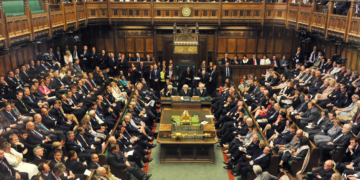May 6, 2025 Story by: Editor
A new poll reveals that most Britons do not recognize the vital role played by Black and Asian personnel in the Allied fight against fascism during the Second World War.
Conducted by FocalData on behalf of the thinktank British Future ahead of the 80th anniversary of VE Day, the survey highlights significant gaps in public knowledge of Commonwealth and minority‑ethnic soldiers’ service.
The representative poll of 1,079 adults found overwhelming support for commemorating all who fought, regardless of origin, with 86% agreeing “all those who fought for Britain in the world wars…should be commemorated” and 77% believing that remembering a shared wartime history “could help build cohesion in today’s multi‑ethnic society”.
Yet fewer than a quarter (24%) knew that troops from Jamaica and Kenya served alongside British forces, only 34% were aware of Muslim soldiers’ contributions, and just 43% recognized the service of Sikh personnel.
British Future stresses that the western Allied armies were “remarkably diverse,” encompassing Hindus, Sikhs and Muslims from India’s 2.5‑million‑strong army, alongside some 1 million recruits from across Africa and tens of thousands from the Caribbean, who took part in key battles, intelligence work and medical support.
One poignant example is Private Clarence Alvin Trimm, a 21‑year‑old Canadian of Guyanese descent, who lied about his age to enlist at 15 and was killed in Germany just weeks before VE Day.
In an open letter released by the Together coalition, ten Second World War veterans—including former UK, Indian and US service personnel—urged the public to honour the “loss of so many from across the globe” and to remember “how it took all of us coming together across classes, religions, races and nations to prevail against authoritarianism”.
Ahead of a May 7 webinar on these contributions, Sunder Katwala, director of British Future, called for stepped‑up education efforts, noting that 45% of respondents were unaware of India’s army role despite its 2.5 million‑strong force.
The Commonwealth War Graves Commission has also urged reflection on VE Day’s global sacrifices, while campaigners argue that instilling knowledge of this diverse legacy in schools and public commemorations is essential to forging a more inclusive national identity.
Source: The Guardian

















